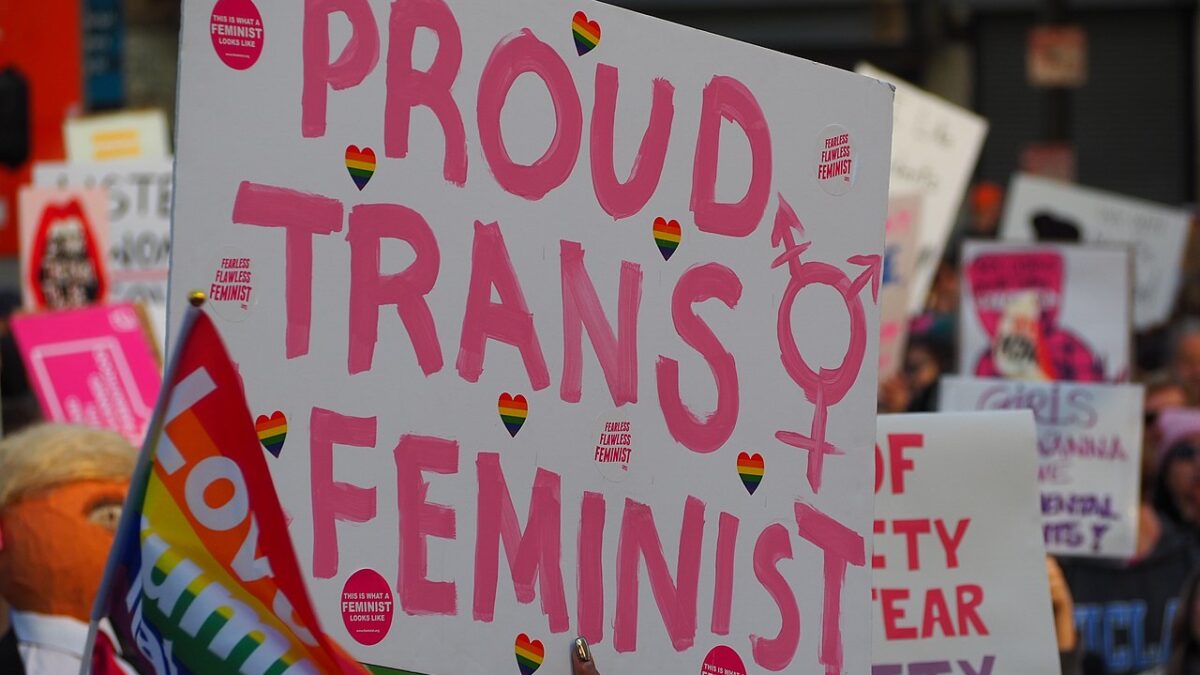
Camille Paglia takes Madonna to task for exposing her nipples at the age of 56 for Interview magazine, accusing her of putting “herself on the front line of an increasingly toxic war between young and middle-aged women. It is a fight she cannot win and she should learn to age well.”
With full-throttle honesty of the kind only Paglia can deliver, she says, “The muddy, slack-jawed cover image makes Madonna look as paralytically congealed and mummified as a Celtic bog body. . . . What is shocking about these ugly photographs is not their tiny nudity but their mediocrity and monotony.”
Paglia says making middle-aged women look younger with Photoshop does no service to feminism. “The ultimate issue here is the media-fuelled nuclear arms race being waged between middle-aged women and the young women whose dewy nubility they vampirically covet. This is a war that ageing women can never win: cruel time conquers all.”
Time does conquer all, so what is Paglia’s answer: If women want to maintain social power and preserve feminism, they need to age well. They shouldn’t let the cult of youth pit women against one another—they should understand what their power is at any given age and use it.
Since the 1960s, women have made enormous gains in sexual freedom and professional advancement. But intractable new problems have cropped up.
Youth cult, another bequest of the 1960s, has obliterated the border between life stages that all prior cultures had honoured. Mature women once had near-dictatorial power over young women, whose courtship, marriages and pregnancies they supervised.
Modern career women have won economic power but lost the social power that was once wielded by the dowager or grande dame (typified by Oscar Wilde’s Lady Bracknell), who cowed the girlish ingenues.
With motherhood having been demoted by feminism to secondary status, there is now no distinct role or persona for the ageing woman, who all too often keeps anxiously measuring herself against an impossible youthful ideal.
If older women want to maintain their power in society, they need to stop acting like younger women. It weakens them because they simply can’t compete. The saggy midriff of the 50-year-old just doesn’t stand up to the toned perfections of a 20-year-old.
Why Does Everything Have to Be about Power?
Even though I applaud Paglia’s criticism of Madonna and the folly of clinging to youth like dew on a desert flower, I don’t agree that the primary issue should be power. Paglia puts feminism—all of life, actually—in this context: Young women have a power that’s all their own, and they should use it, particularly their sexual power. Older women have power, too—over younger women, as overseers of their development and as matriarchs.
But why think in terms of power? Why not think about how women can progress through various stages of their lives, not to seek power, but to serve, to sacrifice, to love, developing inner qualities that never age, but grow more beautiful with the passing of time?
As is evidenced by celebrities whose plastic surgery debacles are plastered on the cover of magazines as they refuse to age gracefully, we have a tyranny of the maiden in our culture. She is our goddess, our ideal, because she represents everything we value most—youth, sex, and physical beauty. Instead of raising young girls to tend their inner beauty, we bombard them with sexualized messaging about how to cultivate their outward beauty. This makes them self-centered and narcissistic, something that influences their attitudes toward motherhood, marriage, and aging.
Perpetually Extending Maidenhood Robs Women of a Rich, Multifaceted Life
In our materialistic, self-centered society, the selfish, immature, sexually free life of the maiden needs to be extended as long as possible. It’s “all about me” and what “I want to get out of life.” Marriage and motherhood and even some types of careers that involve service get in the way of that. Our society pushes for women to pursue whatever will give them independence and power—economically, socially, and sexually.
Serving others takes a back seat to “pursing my dreams” and “living my life the way I want to live it.” So marriage is delayed. Motherhood is postponed or rejected. If a woman becomes pregnant, she gets an abortion. Motherhood needs to be kept at bay, and even when it’s embraced, women feel depressed because they’re not living the life of the maiden. They feel bound by their children’s needs, and their resentment grows as they look at raising children as a time to be endured until they can start living their lives again, until they can become the maiden once more. Sadly, many mothers never really enjoy their children. They live in the shadow of the maiden, taunted by her unworn, taut, carefree beauty. Instead of delighting in their children, they feel as if they’ve been robbed of something integral to their identity as a woman—the face of the maiden. So they grasp for what is lost.
On and on it goes, as women move from motherhood to the crone years, desperately holding on to their maiden visage. But that identity is gone. Time has stolen it from them. As Paglia said, motherhood was either rushed through and not savored or it was rejected altogether, so there isn’t even that aspect of womanhood to carry with them into the twilight years. All they have is what they have always longed for—the mirage of perpetual youth and a sexualized image of themselves forever reflected in a magical mirror.
It’s Time to Move Past the Madonna Cult
The only solution to this sad dilemma is for a woman to see herself, not as a maiden, but as a woman—a human being with a body and soul—who goes through different stages in her life, transforming into a better and wiser person. What she carries with her through each of those stages is her character, her inward self that is growing in love, knowledge, and wisdom. But she can’t cultivate those aspects if she is focused on sexual, social, and economic power. She can only do it if she sees past the power constructs of the world and realizes what’s really important, what will last, what will grow more and more beautiful—her spirit, her mind, her soul. Those grow more lovely in the fertile soil of loving relationships, service, hard work, humility, devotion, loyalty, and faith.
One step our culture can take in moving away from the cult of youth and the worship of the sexualized maiden is to honor women who stand athwart these social dynamics. We need to honor our mothers and grandmothers who have worked hard their entire lives caring for their families. We need to honor women in our communities who might never have had children, but they serve nonetheless, even without fanfare. They have lines on their faces and gray in their hair, but their beauty shines from within. Instead of tweeting about what Kim Kardashian is wearing—or not wearing—let’s talk about what women of substance are doing to make a difference in our world. Or better yet, let’s put down our smart phones and actually do something productive in society, something that gets our minds off of ourselves and focused on other people.
The more young women think about their character and the needs of others and less about their physical appearance and material accomplishments, the better prepared they will be to be mothers, to give up some independence to raise strong and well-loved children who will be a blessing in this world. Mothers who are happy raising their children will be more at peace as they enter the twilight years. They will feel comfortable in their own aging skin because they will have cultivated a heart that is focused on others. This “heart cultivation” will enable them to help younger women become strong and wise as they work through the difficulties and trials of their own lives.
It is important to point out that the stages of a woman’s life are not strictly defined. She doesn’t just move from maiden, to mother, to crone. Some women never have children, for a variety of reasons. This doesn’t mean they are selfish or that they can’t become happy older women. Women without children have even more opportunities to serve their communities and to use their vocations as a means to uplift and improve the lives of other people. Whatever they do, whether they’re a CEO, artist, lawyer, or secretary, their work can be a way to become a better person from the inside out—if they focus on other people, not simply themselves. Then, when they’re older, they won’t be spending their time staring in the mirror wondering where their beauty went. They will have put away the mirror long ago because they were too busy looking at others instead of gazing at themselves. The beauty they see as time marches on isn’t the fading image of a maiden, but their own inward beauty reflected in the faces of their families and their friends.









